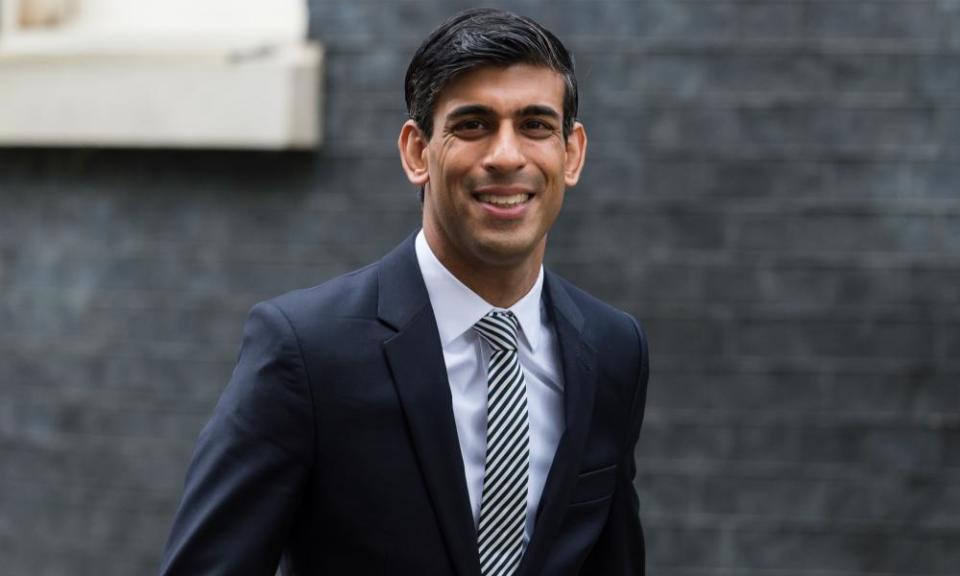From mansions to pensions: how will the budget affect taxes?

Reports that Boris Johnson and the new chancellor, Rishi Sunak, are preparing tax rises in the budget on 11 March have raised concerns within the Conservative party. Several proposals have been aired in the media, including two that would have been anathema under previous Tory administrations: a fuel duty rise and the imposition of a mansion tax.
Mansion tax
What is the proposal?
The Conservative party has not formally outlined plans for a mansion tax but reports have floated the possibility of one being introduced. Under a Labour party policy for the 2015 election, it took the form of an annual levy on homes worth more than £2m.
At the time, Labour’s plan was widely derided by the Tories before the 2015 election when Johnson attacked the idea of a levy on homes worth £2m, calling it a “tax on London” when he was the mayor.
How much would it raise?
Announcing the Labour policy in 2014, then shadow chancellor Ed Balls said the charge would raise £1.2bn a year. This implied an average annual levy of at least £11,000 per affected property, based 110,000 homes being affected, though paying the tax could be deferred until death.
Why is it a problem with some Conservatives?
The idea does not sit well with a party that is strongly associated with wealth creation and private asset ownership. In 2012, Tory ministers fought their Liberal Democrat coalition partners, who favoured the idea of a mansion levy, describing it as a homes tax that “would not happen on our watch”.
Revaluation of homes (council tax)
What is the proposal?
Mooted at the same time as the mansion tax, No 10 is reportedly considering a UK-wide home revaluation to squeeze more out of the council tax. Council tax bands in England and Scotland are based on a 1991 valuation of housing stock. The council tax is a regressive levy that falls mostly on people with modest homes. Those people in more expensive homes only pay marginally more than those on the lowest bands.
Successive governments have floated the idea of a fresh valuation – and the Johnson administration’s is the latest proposal. The last Labour government planned to revalue council tax bands in England in 2007 but postponed the decision until after the 2010 general election, which it lost.
How much will it raise?
Council tax receipts are expected to total £36.3bn in 2019-20, equivalent to £1,300 per household. It is not known how much would be raised because it depends where the new bands are drawn. It could be designed to be revenue neutral, forcing people in more expensive homes to pay more.
Why is it a problem with some Conservatives?
Property values in Wales and Northern Ireland were reassessed in 2005. In Wales about a third of all homes were placed in a higher band. Such an outcome in England would probably cause uproar.

Fuel tax
What is the proposal?
Britain’s 37 million drivers could face the first fuel duty rise in a decade next month. The budget could add 2p to the cost of a litre of petrol and diesel, government sources told the Sun.
How much would it raise?
Over five years it could raise as much as £4bn, said No 10.
Why is it a problem with some Conservatives?
Motorists are a key constituency for the party. Johnson told the Sun last October he heard vehicle owners’ concerns about taxation “loud and clear” after hinting broader tax cuts were on the way in the next budget.
The Institute for Fiscal Studies (IFS) thinktank said the Treasury had already lost out on a potential £5.5bn since the Tories came to power in 2010 by freezing the duty, rather than raising it in line with inflation.
A 2p cut would leave the Treasury with £1bn less to spend each year, the IFS said.
Pension tax relief
What is the proposal?
The Treasury has drawn up plans to cut the rate of relief for higher earners from 40% to 20%. At present, people can put up to £40,000 into their pension per year and do not pay tax on that contribution. It costs up to £40bn to promote retirement savings via tax relief.
The pension tax relief policy would level down rather than level up. However, it is considered a priority before the budget after sources close to No 10 made it known Johnson believed it was perverse to hand higher-rate taxpayers more generous pension tax relief than standard-rate taxpayers. For this reason it is considered to be in a different category to the mansion tax and revaluation of homes.
How much would it raise?
Estimates vary but No 10 sources say it would raise £10bn a year.
Why is it a problem with some Conservatives?
One the one hand, it is a tax break enjoyed by an elite. Higher-rate taxpayers total 3.85 million people, equivalent to one in seven. On the other it is a broad benefit to the many. The Institute for Fiscal Studies said that at any given point in their lives as many as one in four workers, or eight million people, become higher-rate taxpayers.
Tory sympathies tend to be with the aspirational worker who will one day enjoy higher incomes and an accompanying higher pension tax relief.
Lobbying against any changes will also come from employers with defined benefit occupational pension schemes. These depend on higher rate relief to subsidise employee contributions and close their yawning funding deficits. A cut in relief would mean deficits increase.
Expanding inheritance tax to cover business assets and shares
What is the idea
Inheritance tax forces estates to pay 40% tax on assets worth more than the £325,000 threshold or £475,000 if the asset is a home that is left to children or grandchildren. A spouse or civil partner can inherit the tax break, doubling the threshold to up to £950,000.
Many business assets, including farmland, can be excluded from the calculation of taxable wealth, lowering the charge even further for many wealthy households. No 10 is reportedly considering including those assets in the inheritance tax remit.
How much will it raise?
Inheritance tax receipts hit a record £5.4bn in 2018-19, up from £5.2bn the previous tax year. A study by the insurer Canada Life calculated deaths within the baby boomer generation over the next decade will raise receipts to £10bn by 2030. Denying families tax breaks, especially those with businesses to hand on to their children, would increase that figure further, possibly by several billions of pounds depending on how draconian the measures turn out to be.
Why is it a problem with some Conservatives?
The idea has the backing of Johnson’s adviser Dominic Cummings, who is sympathetic to ideas for different forms of wealth taxes. But a decade on from a budget that was dominated by George Osborne’s gifts to older people in the form of extra tax breaks, tightening the tax net around more of the UK’s wealthy families would probably spark a backlash from core Tory constituencies.
• Sign up to the daily Business Today email here or follow Guardian Business on Twitter at @BusinessDesk

 Yahoo News
Yahoo News 
